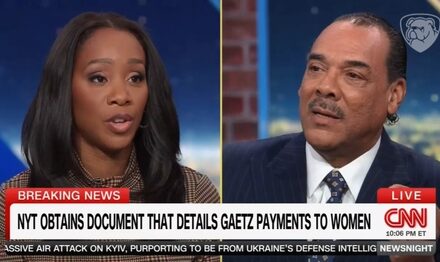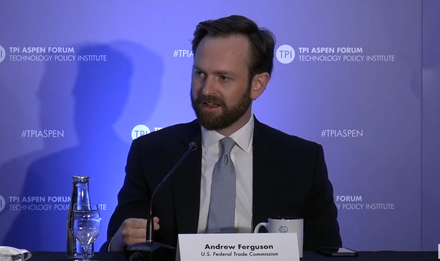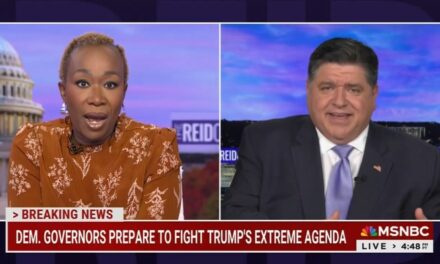We support our Publishers and Content Creators. You can view this story on their website by CLICKING HERE.
As part of the latest developments in the $1 billion defamation suit against them, CNN was attempting to keep anchor Jake Tapper from being compelled to answer deposition questions about his salary and comments he had made on-air regarding Fox News’s defamation settlement with Dominion Voting Systems. That’s according to a court filing exclusively obtained by NewsBusters.
As NewsBusters reported in late November, Plaintiff and Navy veteran Zachary Young via lead counsel Vel Freedman wanted the court to compel Tapper to answer some of the “more than thirty questions” CNN’s counsel directed him not to answer:
Mr. Tapper sat for deposition on November 20, 2024. In the course of less than two hours, CNN’s counsel directed Tapper not to answer more than thirty questions. The end result was that CNN prevented Plaintiffs from (1) gathering basic financial information (e.g., Tapper’s salary); (2) exploring issues the jury might need to assess a punitive damages award (e.g., Tapper’s opinion on what financial penalty might deter CNN from future misconduct); and (3) from even asking for clarification of Tapper’s answers or getting complete answers to the questions the witness did answer (e.g., interrupting the witness mid-answer saying: “Just answer the question as asked”).
In their counter motion to keep Tapper from being deposed a second time, CNN’s lawyers argued:
When the Court permitted Plaintiffs to depose Tapper as part of punitive damages/financial worth discovery, it expressly instructed that Plaintiffs were not to explore fact[1]discovery issues, and, if they did, CNN would be well within its rights in objecting and instructing the witness not to answer. That’s exactly what CNN counsel did here, citing to the Court’s decision and Rule 1.310 of the Florida Rules of Civil Procedure, which expressly permits counsel to instruct a witness not to answer in order “to enforce a limitation on evidence directed by the court[.]” CNN’s counsel only instructed Tapper not to answer when Plaintiffs’ counsel posed questions that were flagrantly outside the scope of the deposition as set by the Court. Plaintiffs are not entitled to re-open Tapper’s deposition to pose questions outside of the boundaries the Court correctly circumscribed.
Regarding questions about Tapper’s salary, CNN contended that that information doesn’t speak “to CNN’s resources and profitability” as Young’s filing argued. Rather, “What speaks to “CNN’s resources and profitability” is the total amount CNN spends on compensation relative to the revenue it generates.”
The filing also suggested, “CNN has produced documents disclosing that information, in addition to producing information about the 7 overall amount The Lead in particular spends on employees and on-air talent.”
They also provided this assumption as why information about Tapper’s was specifically requested: “Their only purposes for pressing Tapper to disclose his salary are to harass him and to inflame the jury by calling attention to the salary number of one its more recognizable on-air talents.”
Evidence was not provided as how they came to that conclusion.
Further in the filing, CNN’s lawyers defended interjecting and instructing Tapper not to answer questions about his opinions regarding the $785 million settlement Fox News paid to Dominion and if that seemed enough of a punitive damage, similar to what CNN could be on the hook for in this case:
In many instances, Plaintiffs’ counsel set up the question by playing a clip of 8 Tapper expressing opinions on some other matter entirely. For instance, Plaintiffs’ counsel played a clip of Tapper commenting on Fox News’ $787.5 million settlement with Dominion, and then asked these questions:
Q. Mr. Tapper, do you think this 785-and-a-half-million-dollar settlement was enough to financially disincentivize Fox from engaging in further defamation?
Mr. Tobin: I instruct Mr. Tapper not to answer that question for the reasons I’ve stated.
Q. Mr. Tapper, do you believe a similar sanction against CNN would disincentivize CNN from engaging in defamation.
Mr. Tobin: Same instruction.
They pointed out that they did allow Tapper to answer if/how “he, personally, would be greater incentivized to tell the truth if CNN were hit with a massive punitive damages award.”
“On that question, Tapper testified that his core and animating professional commitment is to doing his best to always report the truth, and that, accordingly, no punitive damages award would increase his commitment to truth-telling,” CNN’s lawyers paraphrased.
On the matter of Tapper telling the truth; he once insisted there was “no reason to doubt” Gaza death toll claims by the Hamas terrorist organization, misled Americans about how “Russia hacked the [2016] election,” and perpetuated the lie that the U.S. Supreme Court gave President-elect Trump the ability to assassinate his political opponents.

 Conservative
Conservative  Search
Search Trending
Trending Current News
Current News 





